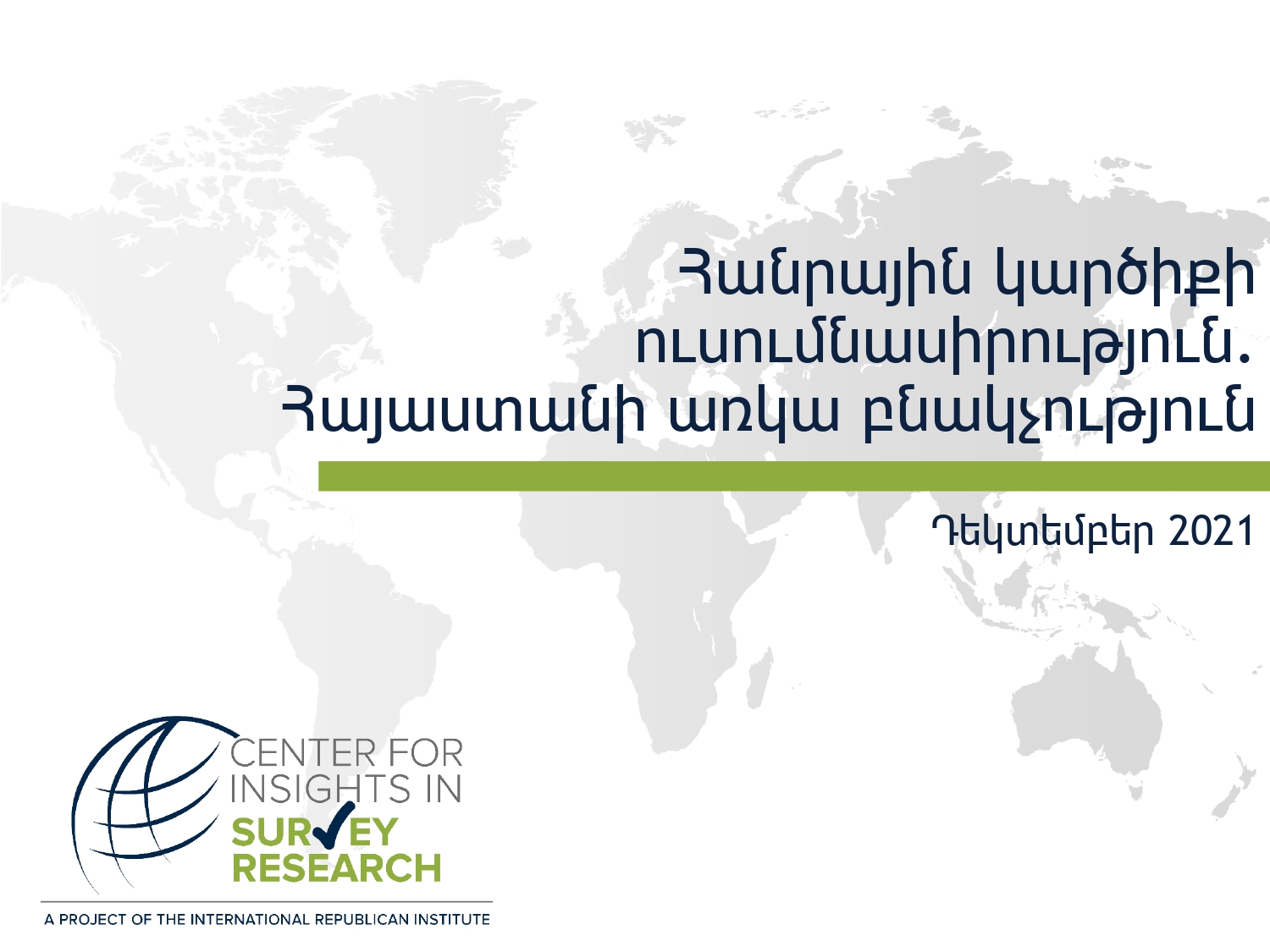A recent study by the International Republican Institute (IRI) shows that the main concerns of Armenians are related to borders and territories.
Examining the public opinion in Armenia, the research included many questions about Artsakh, neighboring countries, and the future. There are also traditional questions about the credibility of state institutions and their own role in crucial decisions.
But Artsakh and foreign policy are the core of this research.
The data was collected throughout Armenia between November 22 and December 5, 2021, via telephone interviews. 1,512 RA citizens took part in the survey.
The most prevalent answer to the question “In your opinion, is Armenia moving in the right or wrong direction in general?” Is “Wrong.” In fact, 46% of Armenians think so. That percentage is higher than last year. The answers to this philosophical question are comparatively interesting.
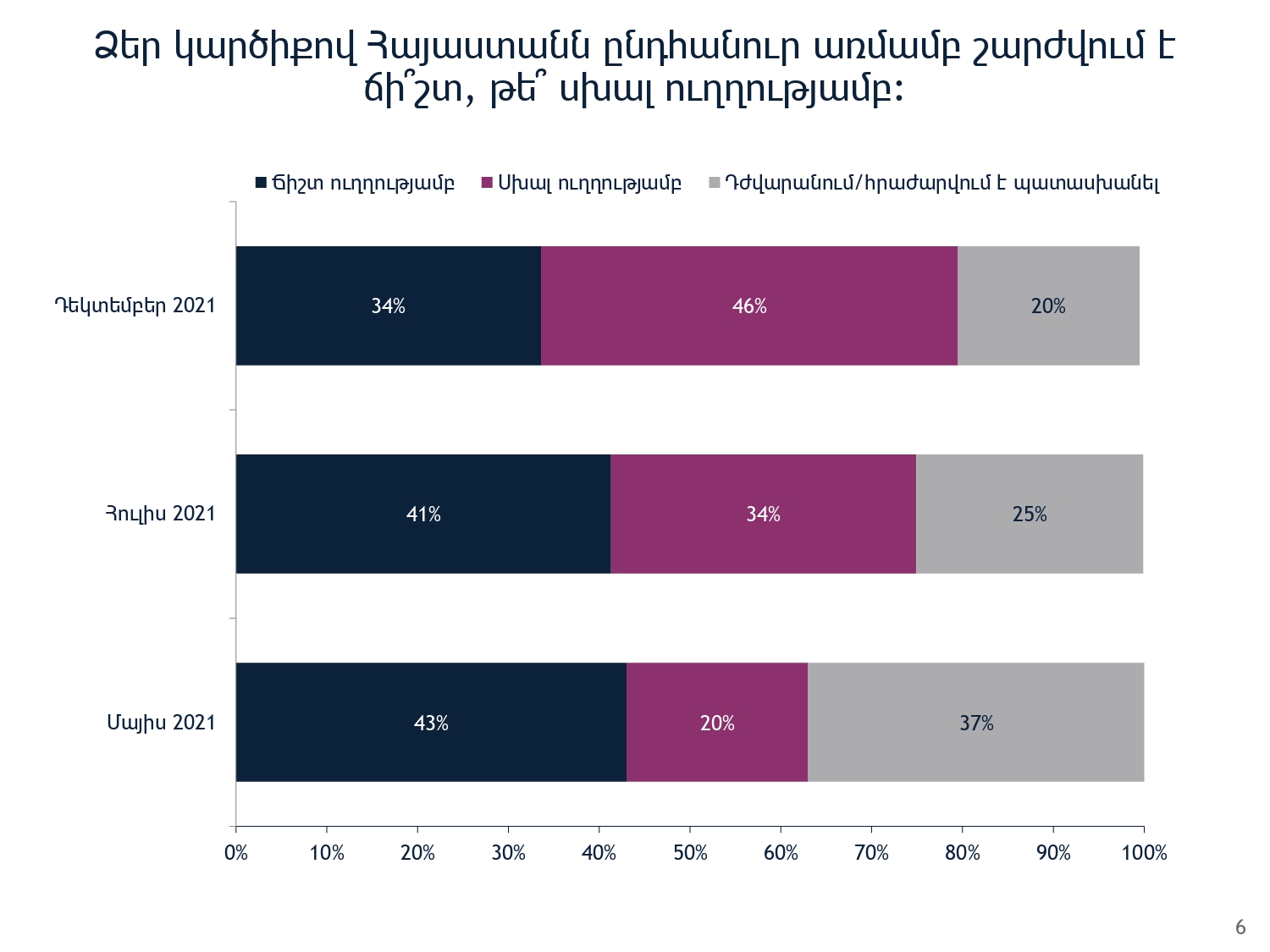
48% of the respondents are sure that people in Armenia are not afraid to express their opinion freely. And only 9% said that they are definitely afraid. Moreover, the more a person has a stable livelihood, the more they tend to think that there is no need to be afraid to express themselves freely.
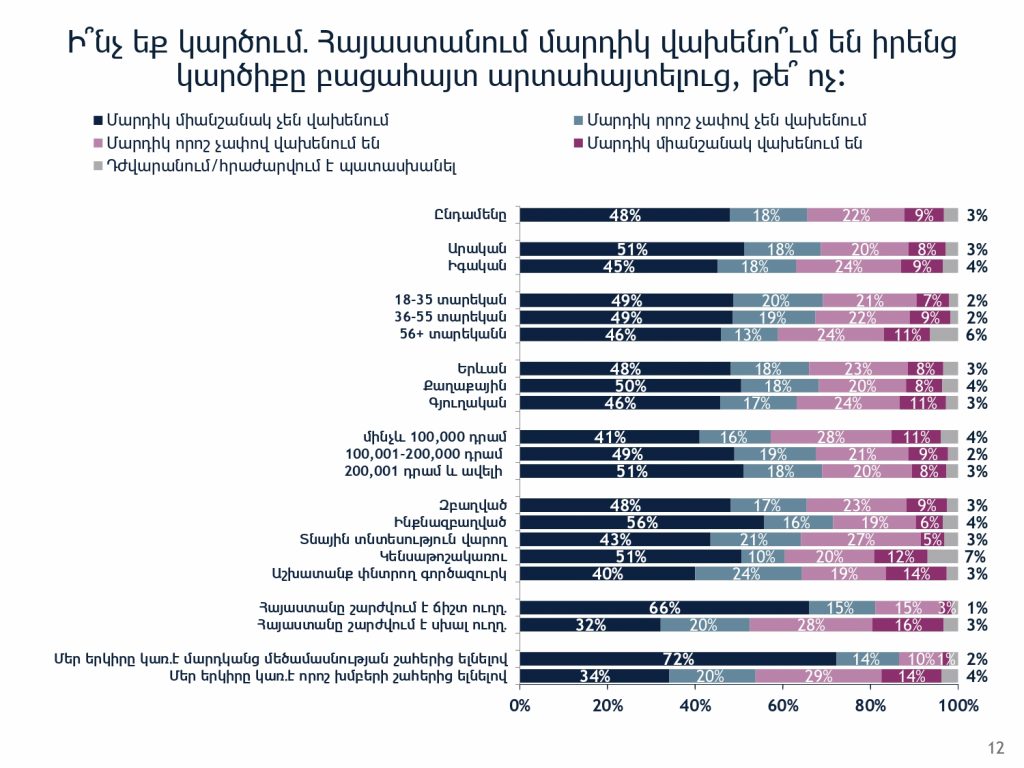
The first among the credible state institutions is the Human Rights Office (according to the polls of previous years, the leader was the army). The National Assembly was considered the least reliable.
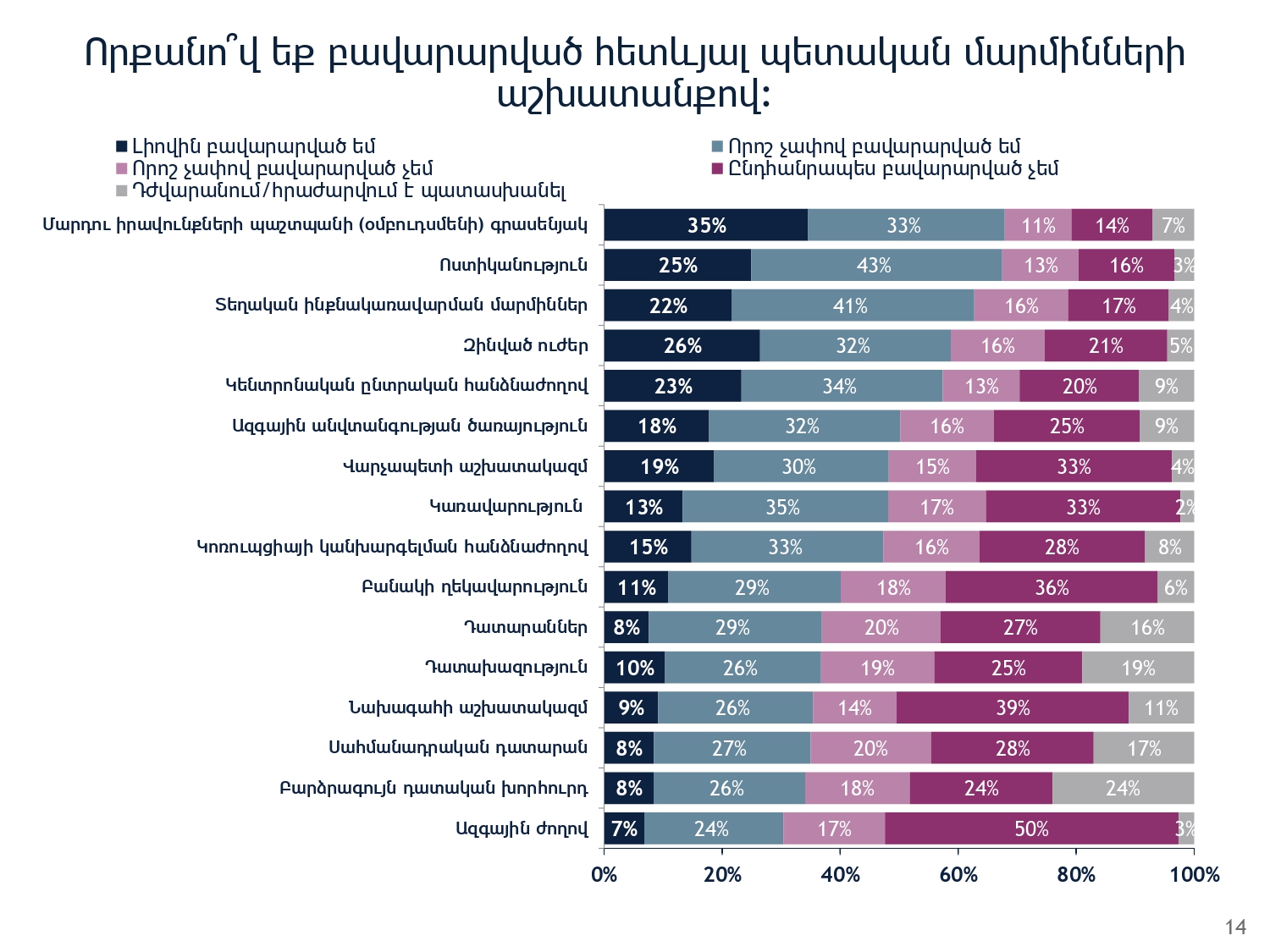
50% of Armenians are definitely not satisfied with the work of the National Assembly, and only 7% are fully satisfied. This is actually a very worrying indicator for the state.
The work of the President’s staff also gave more grounds for dissatisfaction (39% are not satisfied at all).
The work of almost all state bodies (courts, government, army leadership, prosecutor’s office, etc.) was assessed as insufficient. The police gave the least reason for complaints. Only the reputation of the ombudsman’s office has grown.
This research compiled the issues related to the media field, taking into account foreign policy. And here Public Television was considered the most reliable (28%), then the other surface TV companies and Azatutyun (RFE/RL).
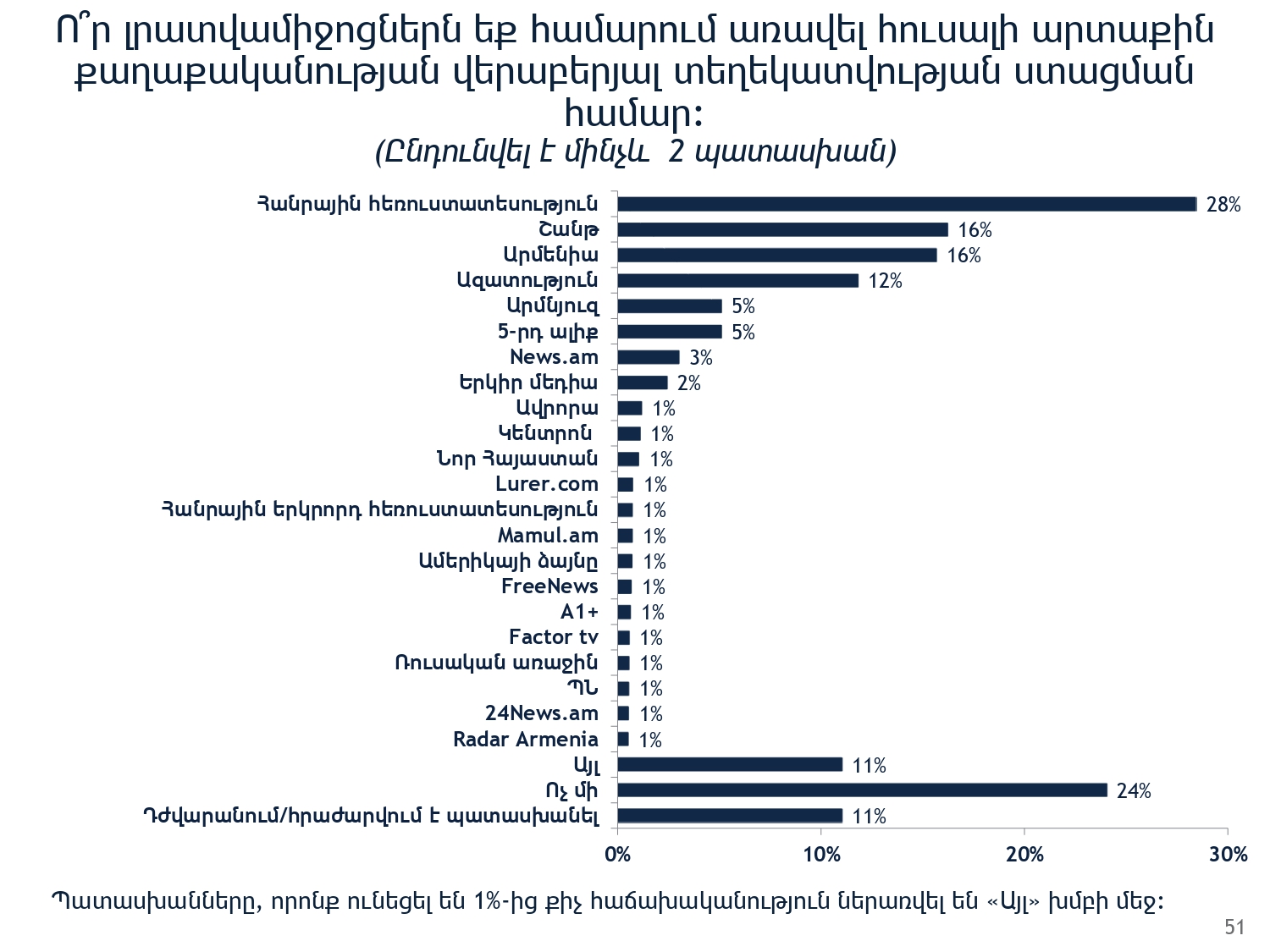
But the problem is that 24% think that there is no reliable media outlet. And 11% said they find it difficult to answer or refuse to answer.
And the percentage of those people who cannot decide or do not trust the media is in fact too high to be able to talk about a credible media field.
The questions about social media are also in the context of receiving political news. For 51% of the respondents, the champion is Facebook, where people come every day to find out what political events are taking place. 25% go to YouTube every day, and only 2% to Twitter.
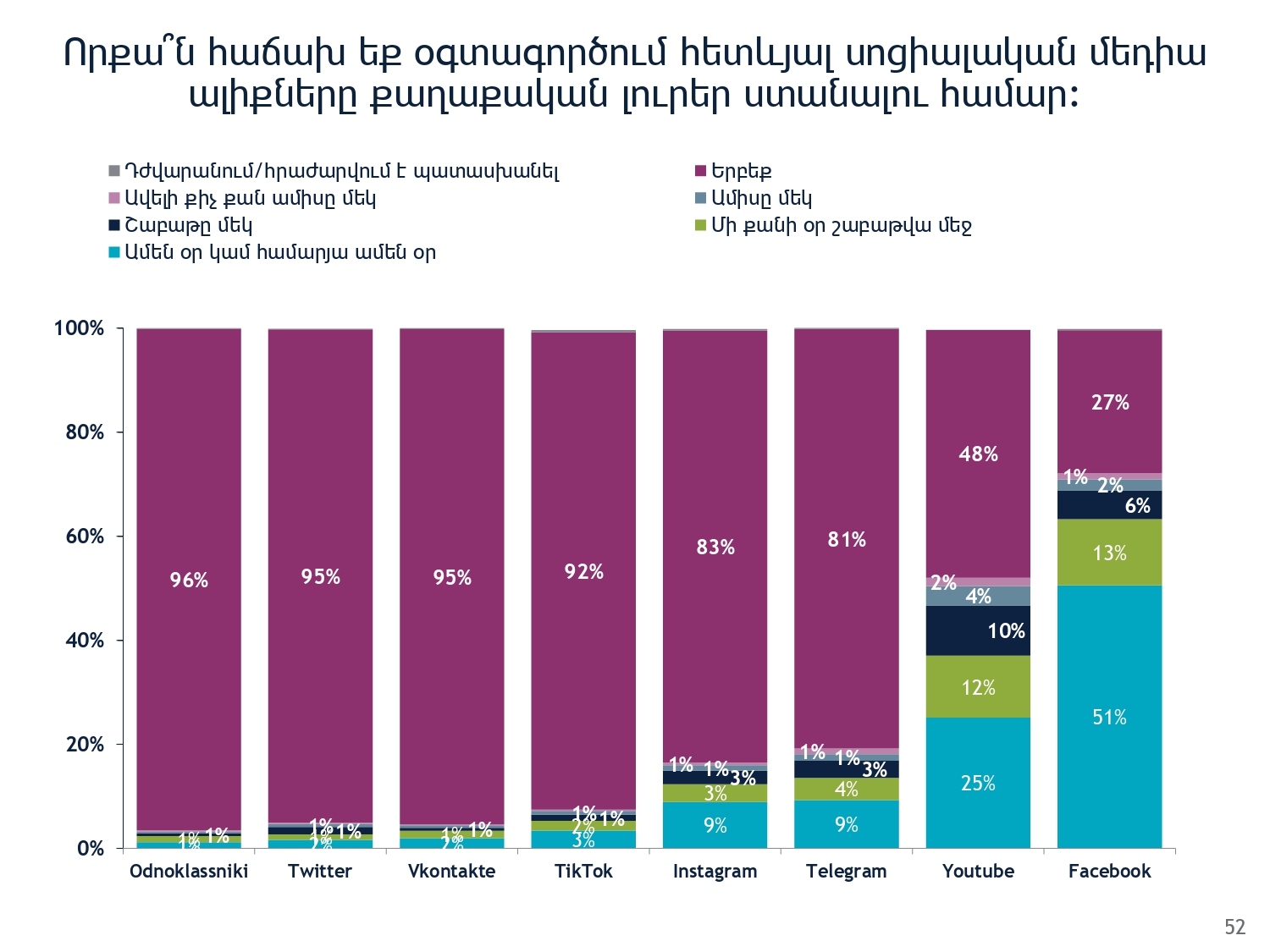
From the point of view of foreign policy, the news received from the ombudsman’s office (25%) was considered more reliable than the news received from the Ministry of Foreign Affairs (9%) and the Prime Minister’s Office (15%). The role of independent experts and NGOs was very low. And 18% said that they do not see any reliable structure.
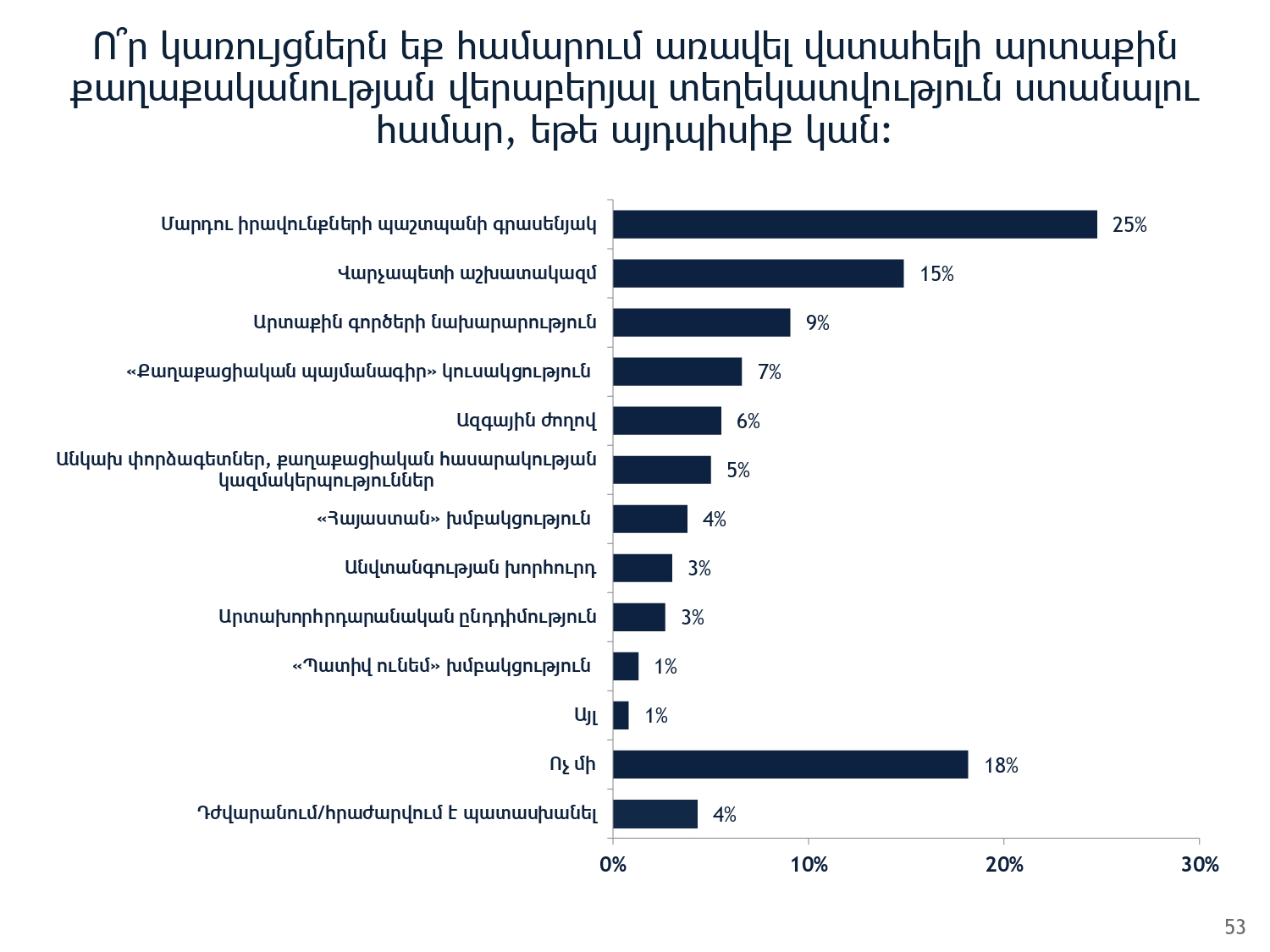
The answers to the questions about the war and foreign policy prove that the majority of Armenians, 70%, are in favor of establishing relations with Turkey. Only, of course, if it does not hinder the settlement of Artsakh and does not reject the Armenian Genocide.
90% said that they see the biggest political threat from Turkey, then from Azerbaijan (77%).
In this situation, it is interesting how people assess the news of the unblocking of transport junctions, as well as demarcation and delineation.
25% are convinced that it should start after the final settlement of the Artsakh issue and the signing of a peace agreement with Azerbaijan.
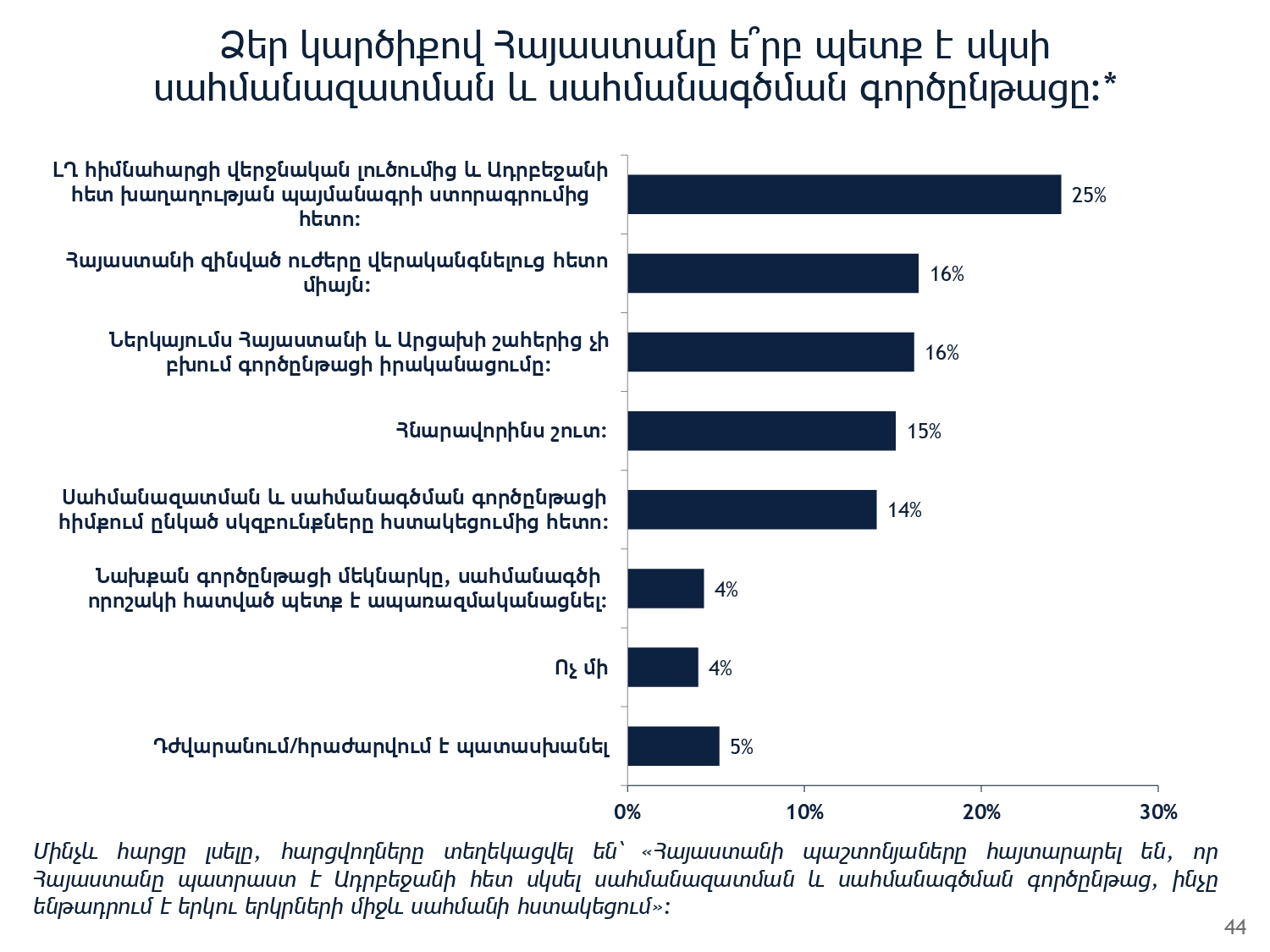
This graph probably best describes Armenia’s current concerns. Society is trying to find signs of a final solution, being convinced that the solution to the Artsakh problem will be important for the future of Armenia in the next ten years. 82% of Armenians think so.
Nune Hakhverdyan

